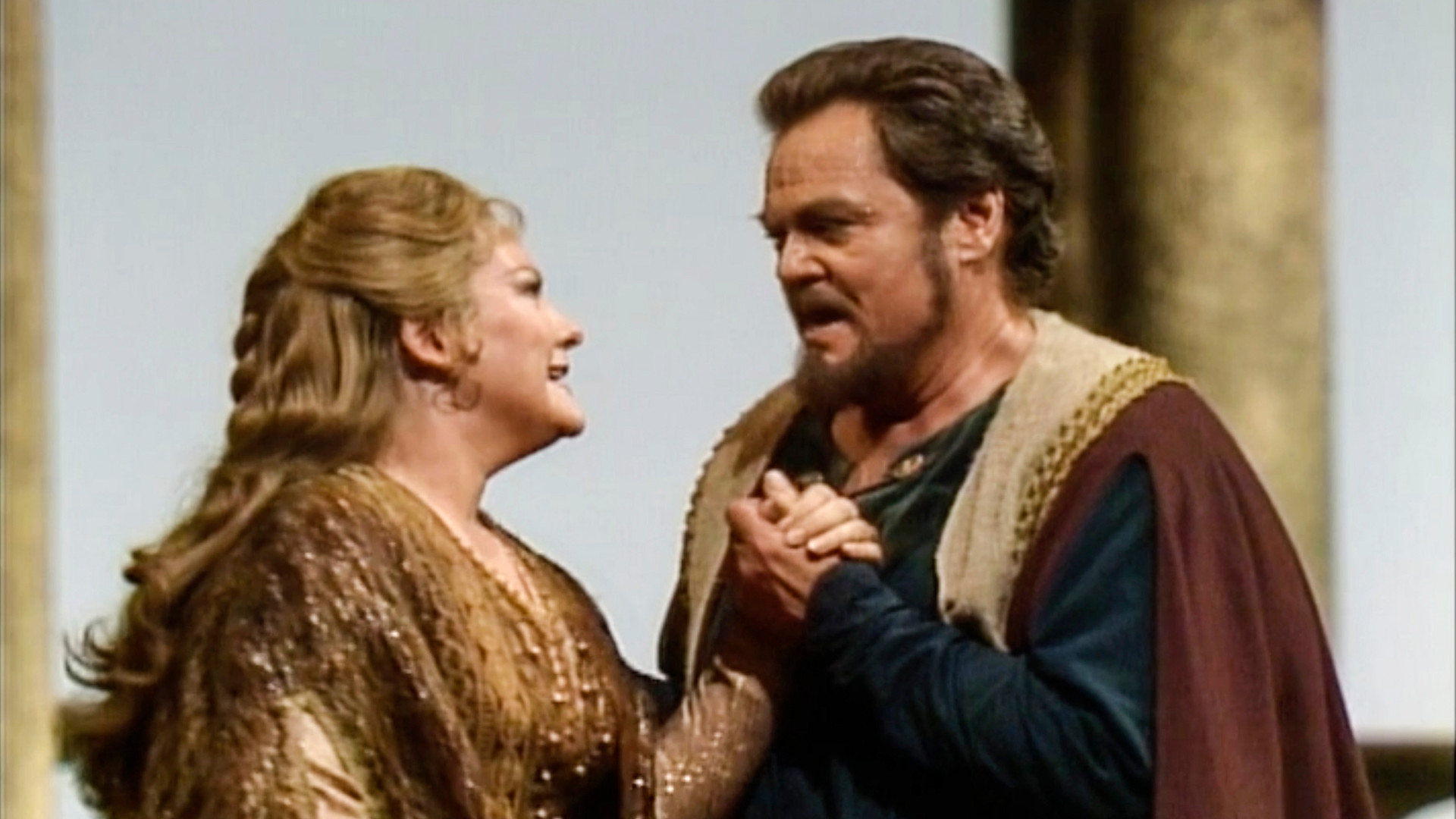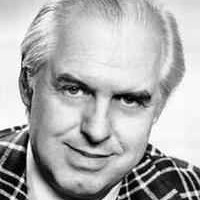ACT I
Wartburg castle and environs, medieval Germany. The minnesinger Tannhäuser, having spent a year in the magical underground realm of Venus, the goddess of love, longs to return to the human world. He pays tribute to Venus in a song but ends by asking her to let him go. Surprised, Venus promises him even greater pleasures, but when he insists and repeats his pleas, she furiously dismisses him and curses his desire for salvation. Tannhäuser cries out that his hope rests with the Virgin Mary—and suddenly finds himself transported to a valley near the castle of the Wartburg.
A procession of pilgrims passes on the way to Rome. Tannhäuser is deeply moved and praises the wonders of God, as horns announce the arrival of a hunting party. It is Landgrave Hermann with his knights. Recognizing Tannhäuser as their long-lost friend, they beg him to return to the castle with them, but Tannhäuser is reluctant. Wolfram, one of the knights, reminds him that his singing once won him the love of Elisabeth, the Landgrave’s niece. On hearing her name, Tannhäuser understands what he must do and joins his companions.
ACT II
Elisabeth joyfully greets the Wartburg’s Hall of Song, which she hasn’t set foot in since Tannhäuser left. He is now led in by Wolfram. Elisabeth, at first shy and confused, tells Tannhäuser how she has suffered in his absence, but then joins him in praise of love. Observing their emotional reunion, Wolfram realizes that his own affection for Elisabeth is hopeless.
Landgrave Hermann is delighted to find his niece in the Hall of Song, and together they welcome their guests who have come for a song contest. The Landgrave declares love the subject of the competition and promises the victor to receive whatever he asks from the hand of Elisabeth. Wolfram opens the contest with a heartfelt tribute to idealized love. Tannhäuser, his thoughts still on Venus, replies with a hymn to worldly pleasures. Other singers counter his increasingly passionate declarations until Tannhäuser breaks out into his prize song to Venus, to the horror of the guests. As the men draw their swords, Elisabeth throws herself between the parties to protect Tannhäuser and begs the knights for mercy. The Landgrave pronounces his judgment: Tannhäuser will be forgiven if he joins the pilgrims on their way to Rome to do penance. Tannhäuser falls at Elisabeth’s feet and rushes from the hall.
ACT III
Several months later, Wolfram comes across Elisabeth praying at a shrine in the valley. A band of pilgrims, back from Rome, passes by, but Tannhäuser is not among them. Broken with grief, Elisabeth prays to the Virgin Mary to receive her soul into heaven. Wolfram gazes after her and asks the evening star to guide her way. Night falls, and a solitary pilgrim approaches. It is Tannhäuser, ragged and weary. He tells Wolfram of his devout penitence on the way to Rome—of his joy at seeing so many others pardoned, and of his despair when the Pope proclaimed that he could no more be forgiven for his sins than the papal staff bear green leaves again. Left without hope, all he wants now is to return to Venus. He summons her and she appears, just as Wolfram once again brings Tannhäuser to his senses by invoking Elisabeth’s name. At this moment, Elisabeth’s funeral procession comes winding down the valley. With a cry, Venus disappears. Tannhäuser implores Elisabeth to pray for him in heaven and collapses dead. As dawn breaks, another group of pilgrims arrives, telling of a miracle: the Pope’s staff, which they bear with them, has blossomed.





